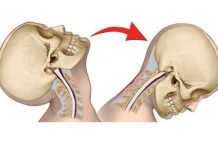Miettinen T, Leino E, Airaksinen O, Lindgren KA
Department of Physical and Rehabilitation Medicine,
Kuopio University Hospital, Kuopio, Finland.
Timo.Miettinen@kuh.fi
STUDY DESIGN: A prospective follow-up study. OBJECTIVES: To evaluate the relation of the state of health before the accident and the significance of the symptoms reported soon after the injury to the situation 3 years after the injury. To evaluate the possibility of using simple validated questionnaires to predict long-term health problems after the injury.
SUMMARY OF BACKGROUND DATA: A whiplash injury is generally benign in its natural course. However, some of the patients have diverse and prolonged symptoms. Although several prognostic factors have been suggested for the poor recovery, in most cases the factors leading to prolonged disability remain unclear.
METHODS: In collaboration with traffic insurance companies, we gathered information of neck injuries that occurred in traffic accidents in Finland in 1998. After the insurance company received a notification of a neck injury and consent from the injured party to participate in the study, they sent the information to the research team. The first inquiry was sent to the patients as soon as possible. One- and three-year follow-up questionnaires were posted to those who responded to the first inquiry. A total of 144 persons returned the 3-year follow-up questionnaires and form the material of this study.
RESULTS : A poor state of health or frequent neck pain or headache before the accident did not have any significant relation to the poor outcome 3 years after the accident. The extent of neck pain and lower back pain reported soon after the accident was significantly associated to a poor outcome in the follow-up. The Neck Disability Index questionnaire was significantly related to the poor outcome after 3 years.
CONCLUSIONS: The subjective experience of a notably decreased level of activity because of the neck pain when supplemented by the enhanced score of Neck Disability Index questionnaire predicts well poor outcome in long-term follow-up and can be used as a tool to identify persons who are at risk to suffer long-term health problems after whiplash injury.







